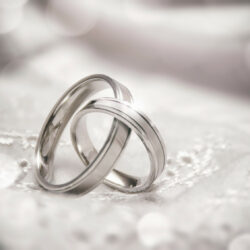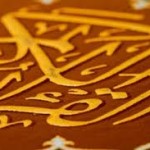Hurmat al-Musaharah
Shortened Question:
Is the marriage still valid or has Huramat-e-Musaharah become applicable in the given situation?
Question:
A lady claims that her father in law came to her house while she was alone. Her hands were under her dupatta. He grabbed it and kissed the back of it (which was bare). Thereafter he slid his hand from her wrist to her fingers then only did he released it. The lady informed her husband who became very angry and inquired about it from his dad. The latter relied that he de did it without Shahwat as he considers her as a daughter. This occurred four years ago. Now the father in law is denying this matter and saying that he didn’t even touch her. Please explain with hawalah if hurmat al-musaaharat established in this case?
Answer:
In the Name of Allah, the Most Gracious, the Most Merciful.
In analysing the laws of Hurmat al-Musaharah:
- The general Hanafi view is that the rules of Hurmat al-Musaharah will only apply if a person experiences lust (Shahwah) while touching or kissing the hand. Furthermore, the Jurists have clearly specified the yardstick for determining `experiencing lust` as the `physical erection of the man`s private parts`. However, mere touching or kissing the hand, without any lust or evidence of lust, will not affect the marriage[1].
- Maulana Zafar Ahmad Uthman, in Imdad al-Akham [2: 811], states that Hurmat al-Musaharah will not apply where there is no claim of lust from the daughter in law or her husband, or any evidence denoting lust (Shahwah) involved from the father in law when kissing his daughter in law`s hand.
- Moreover, Hakim al-Ummat Maulana Ashraf Ali Thanwi, in Al-Hilah an-Najizah [p.89-90], states that, when there is no evidence, the word and testimony of the father in law, in having lust or not, will be accepted if he is known to be just and reliable in his other statements and actions and there is no clear reason not to accept his word.
Accordingly, in the enquired case, Hurmat al-Musaharah did not take place and the Nikah remains valid.
References
[1] Majma` al-Anhur, 3: 61; Fat`h al-Qadir, 6: 379; Fatawa Qadhi Khan, 1: 177; Radd al-Muhtar ala ad-Durr al-Mukhtar, 3: 468]
[2] Maulana Zafar Ahmad Uthman, Imdad al-Akham, 2: 811, Maktabah Dar al-Uloom Karachi
سوال: ایک عورت دعوی کرتی ہے کہ اس کے خسر نے اس کے لب کا بوسہ لیا اور سینہ سے لگایا اور ایک مرتبہ مٹہائ بھی اس کے قبل زبردستی دبا کر سینہ سے لپٹا کر کہلائ تہی جو اس نے باہر حجرہ سے اگل دی ۔۔۔ خسر کی ایک تحریر جو خفیہ طور سے بہو کے نام آئ ھے یہ بتلاتی ہے کہ ان واقعات کا منشآ شہوت نفسانیہ ہے ۔۔۔
جواب ۔۔۔
اگر عورت دعوی نہی کرتی (اس وقت خسر کے عضو خاص میں انتشار پیدا ہو گیا تہا یا زیادہ ہو گیا) تو حرمت مصاہرت ثابت نہ ہوگی
[Imdad al-Akham, 2: 811, Maktabah Dar al-Uloom Karachi]
[3] Hakim al-Ummat Maulana Ashraf Ali Thanwi, Al-Hiilah an-Najizah, p.89-90, Dar al-Isha`at Karachi
And Allah Ta’āla Knows Best
Hanif Yusuf Patel
Student Darul Iftaa
UK
Checked and Approved by,
Mufti Ebrahim Desai.
References
[1] وفي التقبيل والمعانقة حرمت ما لم يظهر عدم الشهوة كما في حالة الخصومة ويستوي فيها أن يقبل الفم أو الذقن ، أو الخد ، أو الرأس وقيل إن قبل الفم يفتى بها وإن ادعى أنه بلا شهوة وإن قبل غيره لا يفتى بها إلا إذا ثبتت الشهوة ( بشهوة )
[Majma` al-Anhur, 3: 61]
وفي التقبيل إذا أنكر الشهوة اختلف فيه ، قيل لا يصدق لأنه لا يكون إلا عن شهوة غالبا فلا يقبل إلا أن يظهر خلافه بالانتشار ونحوه ، وقيل يقبل ، وقيل بالتفصيل بين كونه على الرأس والجبهة والخد فيصدق أو على الفم فلا ، والأرجح هذا
[Fat`h al-Qadir, 6: 379]
وأما المحرمة بدعوى الوطء إذا مسها أو قبلها بشهوة تثبت حرمة المصاهرة وإن أنكر الشهوة كان القول قوله إلا أن يكون ذلك مع انتشار الآلة والمباشرة عن شهوة بمنزلة
[Fatawa Qadhi Khan, 1: 177]
قلت: وخروج المس بغير شهوة بالإجماع غير موجب للحمل على المجاز، خلافا لما في البحر (قوله: ولا يحرم النظر) أي إلى ظهرها وبطنها ولا إلى الشعر والصدر بحر أي ولو بشهوة بخلاف النظر إلى الفرج بشهوة كما مر (قوله: للشفقة) أفاد أن التقبيل لا يحرم إلا إذا كان عن شهوة، وينبغي تقييده بأن لا يكون على الفم لأنه على الفم يوجب حرمة المصاهرة مطلقا تأمل
[Radd al-Muhtar ala ad-Durr al-Mukhtar, 3: 468]
DISCLAIMER:
The Ask Our Imam site hopes to respond to queries relating to Islamic law. It is not an Islamic Law Shari`ah Court. The questions and answers found on this website are for educational purposes. However, many of the rulings rendered here are distinct to the specific scenario and thus should be read in conjunction with the question and not taken as a basis to establish a verdict in another situation or environment. This site bears no responsibility in these responses being used out of their intended context, nor to any party who may or may not follow the responses given and is being hereby exempted from loss or damage howsoever caused. None of the responses rendered may be used as evidence in any Court of Law without prior written consent of Our Imam. Any reference to another website or link provided in our responses or article should not be taken as an endorsement of all the content on that website; in fact, it is restricted to the particular material being cited.
Posted in Nikah & Talaq (Marriage & Divorce) on 17th Jan 2016 by Our Imam | 1979 Views











